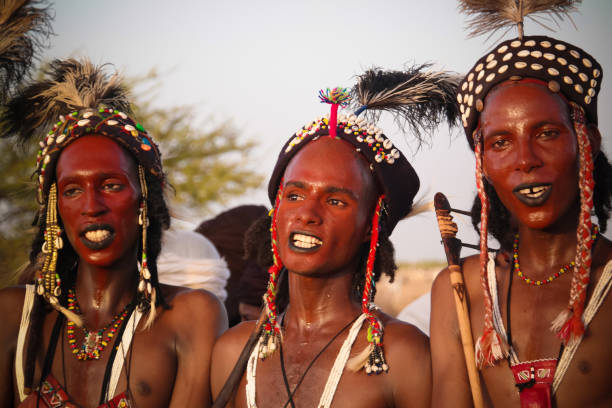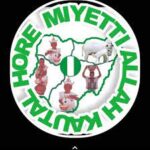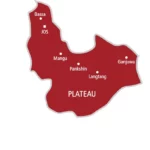For all the trending news about the sordid acts of criminality attributed to them, it was not too long ago that the Fulanis were actually everyone’s favourite people in Nigeria.
Growing up as a kid in the late 1960s and early 70s in Jos, the plateau state capital, it was difficult to think of the Fulani as a malignant people intent on killing, kidnapping and generally making life hell on earth for others. At the Bauchi road Senior Service quarters in the outskirts of the city where we lived as kids, there were a couple of Fulani ruga settlements nearby where we used to go to play with our Fulani playmates. We were always welcomed there and it was fun observing them tend and milk the cows and do the chores that young Fulani boys do in the settlements.
- PHOTOS: Police occupy Lekki tollgate to prevent protesters from reassembling
- #OccupyLekkiTollGate: Drama As Officials Are Forced To Push Van Conveying Arrested Protesters
In my own particular case one of the maidens took a liking to me on account of my bearing the same name as her late husband and she used to affectionately call me “Lasu dingel Allah”, a moniker which became stuck on me not just in the ruga but all around the neighbourhood.
Up to my present life circumstances, I can hardly think of any situation in my long association with Fulanis that will make me consider them in the adverse terms that they are being described today. In one of my most trying life experiences when I encountered difficulties with the late General Abacha military regime, it was to a Fulani ruga settlement that my father spirited me to safety to avoid my being rearrested.
So how and why have the Fulanis morphed from becoming one of the most well liked people in Nigeria to one of its most feared and loathed to the point where some folks have come to believe that the immediate and long term existence of Nigeria rests on the resolution of what is now referred to as the Fulani question in Nigeria? Is this attributable to developments within the Fulani society itself or is it that our perception of the Fulanis has come to be influenced by the often vicious and brutal tenor of Nigeria’s politics which holds no prisoners in the pursuit of interests?
To start with, what really are the issues that the Fulanis stand accused of and to what extent are they culpable? Which ones can we attribute to criminality which should be dealt with under the law and order provisions of the statutes books? Which ones are tainted with the political colouration that often characterise Nigeria’s brand of politicking and which therefore requires further elaboration and understanding which will hopefully leave us with a better picture about the issue. This will hopefully lead us to make informed judgement about one of the most existential issues of our time for which too much emotion and partisanship than necessary have unfortunately been deployed.
History records that the Fulanis as a people came into limelight in 1804 during the Jihad of the same year which was led by a learned Fulani cleric Sheikh Usman dan Fodio. The Jihad was characterised by three key planks. It was a social revolution against the social excesses of the Hausa ruling classes at the time in which majority of the peasant population were treated as no more than serfs and chattel. The second plank of the Jihad was that it aimed and led to the revival of pure Islamic practices which had regressed seriously under the Hausa rulers. And the third and most significant was that the Jihad became a convenient avenue to create a new Fulani hegemon not just in Hausa land but all over northern Nigeria eventually.
From the 1804 Jihad, the Fulanis who were basically a nomadic sub-group that originated from Guinea and Sene-Gambia supplanted the Hausa rulers and became the new political and religious aristocracy. Sheikh Usman dan Fodio because of his depth of Islamic knowledge became both the new spiritual and temporal head of the reality. But it was also instructive that he appointed his brother, his son and his Fulani kinsmen into most of the positions available in the new set up. With few exceptions all the flag bearers sent to take over the Hausa states were Fulanis.
Although the goal of Islamic revival which was one of the key planks of the Jihad was pursued and achieved initially, by 1830s the new Fulani aristocrats in Hausaland had lapsed into the same practices they had condemned of the Husa rulers they replaced. The Hausa masses who had supported Shaikh Dan Fodio’s Jihad found themselves under double jeopardy; they had helped to overthrow their former oppressive rulers only to find the new Fulani rulers same if not worse. The new rulers set up a society in which the Fulanis were top of the social, political and religious pile with the Hausas who were the aborigines at the bottom. Although the new Fulani rulers for one reason or the other were compelled to adopt the use of Hausa culture and language, they nevertheless retained a tight control of political, temporal and social matters. Indeed the Fulani rulers completely expropriated and subsumed the Hausa language and aspects of the culture from the original owners.
The same pattern control was extended to other parts of northern Nigeria where the Fulani rule spread. The raiding for slaves which predated the coming of the Fulanis continued unabated and in more vicious forms. The non- Fulani became an underclass all too often raided, enslaved and used in many forms that satisfied the new Fulani rulers.
There were mixed feelings upon the coming of the British to the Fulani ruled areas of the north. In a way the British stopped some of the dreadful and barbaric practices like slave raiding and general oppression targeted at the non-Fulani natives. But on the other hand, the British more for reasons of self-interest not only retained the ruling set-up and system, they actually reinforced it by strengthening the hand of the Fulani rulers through reforms of the native administrative system. Although they had defeated the Fulani rulers of northern Nigeria, the British pragmatically admired the way in which the Fulani aristocracy of far less population was able to tightly rule and control such a vast area. It reminded them of their similar position in Nigeria and they did not consider it such a good idea to totally remove the Fulani aristocracy and set up entirely new administrative structures. It was one of the options available to them and had they taken it they would have faced a similar incident they faced in Sudan where they almost lost that colony.
Had the British not turned up when they did in Nigeria, the Fulani rulers engaged in the same practices for which they overthrew the Hausa rulers before them and caught up in the web of the many contradictions of their rule, would have faced a similar revolt that happened in 1804 which would surely have altered the course of Nigeria’s history. (To be concluded)

 Join Daily Trust WhatsApp Community For Quick Access To News and Happenings Around You.
Join Daily Trust WhatsApp Community For Quick Access To News and Happenings Around You.


